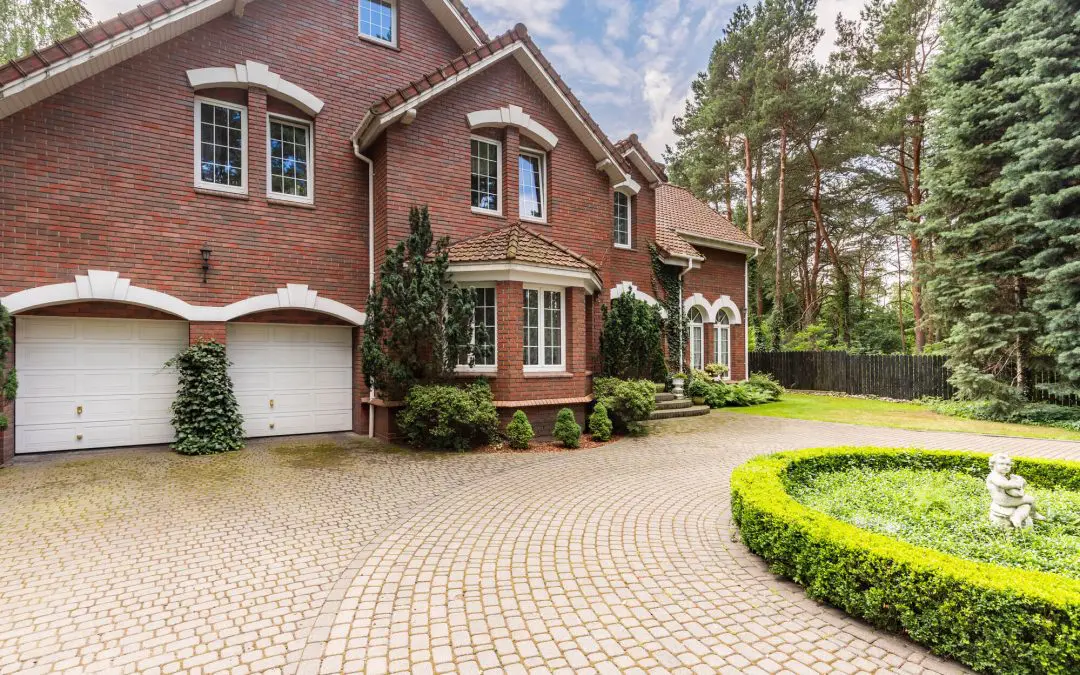When it comes to enhancing the curb appeal of your home, your driveway plays a significant role. It’s one of the first things visitors notice, and it also has to withstand the wear and tear of vehicles and weather. Selecting the right driveway material is crucial for both aesthetics and functionality. In this blog post, we’ll explore various driveway materials, discussing their pros, cons, and ideal applications to help you make an informed decision.
Concrete Driveway Materials
Concrete driveways are known for their durability, often lasting up to 30 years with proper maintenance. They require minimal upkeep, mainly occasional cleaning and resealing, and can be stamped or colored to mimic more expensive materials like brick or stone. However, concrete can be more expensive upfront compared to other materials and may crack in freeze-thaw cycles, making it less ideal for colder climates. Additionally, plain concrete can look industrial or uninviting without decorative finishes. Concrete driveways are ideal for homes in moderate climates and for homeowners seeking a durable, low-maintenance option.
Asphalt Driveways
Asphalt driveways are generally cheaper to install than concrete and can be ready for use relatively quickly. They provide a smooth driving surface and are easy to plow in winter. However, asphalt requires regular sealing to extend its lifespan, typically every 2-5 years, and it generally lasts about 15-20 years. Additionally, asphalt can soften and deform in high temperatures. This makes asphalt driveways a good choice for budget-conscious homeowners and areas with mild to moderate climates.
Gravel Driveway Materials
Gravel driveways are one of the most economical driveway materials and can be installed quickly and easily, often as a DIY project. They offer excellent drainage properties, reducing the risk of water damage. However, gravel driveways require regular raking and additional gravel over time. They can also create dust in dry conditions and mud in wet conditions, and their unstable surface is not ideal for sloped driveways or high-traffic areas. Gravel driveways are well-suited for rural or rustic settings and properties with good drainage.
Pavers
Paver driveways offer a wide range of styles, colors, and patterns for a customized look. They are highly durable and resistant to cracking, and they are easy to repair by replacing individual pavers. However, paver driveways are one of the more expensive options and require a longer, more complex installation process. Weeds can grow between the pavers if not properly sealed and maintained. Paver driveways are ideal for high-end homes and for homeowners prioritizing aesthetics and customization.
Brick Driveways
Brick driveways provide a timeless and elegant appearance that can enhance property value. They are long-lasting and can withstand heavy loads. Brick is also environmentally friendly, often made from natural clay, which is sustainable and recyclable. On the downside, brick driveways have a high upfront cost due to material and labor. They require regular maintenance to prevent weed growth and shifting, and they can become slippery when wet, posing a safety hazard. Brick driveways are perfect for historic or traditional homes and for homeowners willing to invest in a premium driveway.
Eco-Friendly Driveway Materials
Permeable driveways are eco-friendly, allowing water to permeate through, reducing runoff and promoting groundwater recharge. They are often required in areas with strict stormwater management regulations and can be made from various materials, offering versatility in design. However, permeable driveways can be more expensive than traditional driveways and require regular cleaning to prevent clogging. They are not as widely available as other materials. Permeable driveways are ideal for environmentally conscious homeowners and areas with strict stormwater regulations.
Choosing the right driveway material involves balancing aesthetics, functionality, cost, and maintenance requirements. Whether you prefer the durability of concrete, the affordability of gravel, or the classic look of brick, there’s a driveway material that fits your needs and enhances your home’s curb appeal. Take the time to evaluate your options and consult with professionals to ensure you make the best choice for your property.
FAQs About Building a Driveway
How do I know which driveway material is best for my climate?
Materials like concrete can crack in freeze-thaw cycles, making them less suitable for colder climates. Asphalt can soften in high temperatures, which can be problematic in hotter regions. Gravel and permeable driveways offer good drainage, which is beneficial in areas with heavy rainfall.
What are some ways to enhance the appearance of my driveway?
Consider decorative finishes for concrete, such as stamping or coloring. Paver and brick driveways offer various patterns and colors. Adding borders, lighting, and landscaping can also enhance the overall look of your driveway.
How do I handle repairs for different driveway materials?
Concrete repairs often involve patching cracks. Asphalt repairs include filling cracks and potholes. Pavers and bricks are relatively easy to repair by replacing individual pieces. Gravel driveways may need regrading and adding new gravel. Permeable driveways require unclogging and cleaning.
What are the typical costs associated with different driveway materials?
Gravel is usually the cheapest option, followed by asphalt. Concrete is more expensive, and pavers and bricks tend to be the most costly due to materials and labor. Permeable driveways can also be expensive depending on the specific materials used.
GreenTech Home Inspections provides inspections to customers in the Las Vegas area. If you’re buying or selling a home, contact us to request our services.

